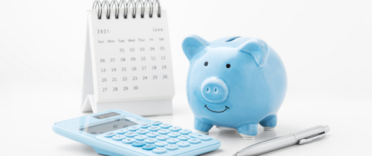 More than 4 in 5 UK parents are putting money away for their children exclusively in cash, according to a new survey by NatWest.
More than 4 in 5 UK parents are putting money away for their children exclusively in cash, according to a new survey by NatWest.
In this article, we explore why you should diversify your savings and show you 5 different ways that you can put money away for your children.
What did the survey find?
NatWest conducted its survey across more than 2,000 parents with children aged under 18.
The research found that three-quarters (76%) of parents and guardians with children aged under 18 stated they are saving or investing for their children, but 83% said they are doing so “exclusively in cash”. While saving money for your children's future is always a step in the right direction, parents saving exclusively in cash may find that their money is not growing in real terms due to rising inflation. Cash savings rates are also at historic lows because of persistently low interest rates.
The study also revealed that nearly a fifth (18%) of UK parents who are saving for their child are doing so by putting away cash in their own bank account, rather than one specifically for their children. Although it may seem easier than setting up a dedicated children's account, children’s savings accounts often have considerably higher rates, so parents could be missing out on opportunities to maximise their children's savings.
However, in light of the financial constraints of the ongoing pandemic, nearly half (48%) of parents who were not saving for their child said it was because they "could not afford to". A further 1 in 10 (8%) did not know where to turn to for advice on how to go about putting money away for their children.
5 ways to save for your children
With UK inflation on the rise, the purchasing power of cash starts to fall, so you get less for your money. If you intend to save over a long period of time, you should be aware that inflation could affect the value of your cash savings. Coupled with this, low interest rates mean it may be wise to look elsewhere for a better return on your savings pot.
Open a Junior ISA
A Junior ISA is a tax-efficient way of building a savings pot for your child. There are two types of Junior ISAs: a Junior Cash ISA or a Junior Stocks and Shares ISA. The lump-sum accrued over time can be accessed by your child when they reach the age of 18. The Junior ISA allowance for the 2021/22 tax year is £9,000. The allowance can be split between a Cash and a Stocks and Shares Junior ISA, meaning a child can have two accounts, as long as their combined total does not exceed the annual allowance. A Junior ISA is a great way to allow your children's savings to accrue with interest, tax-free, over a long period of time.
For more information on the best deals on the market, check out our article "Best Junior Stocks and Shares ISA".
Get a Junior SIPP
A Junior Self-Invested Personal Pension (SIPP) is a type of personal pension that is managed on behalf of a child by a parent or legal guardian until the child turns 18. The maximum gross contribution for a Junior SIPP is limited to £3,600 for the 2021/22 tax year. The contribution limit of £3,600 includes tax relief paid at 20%, which means you can contribute up to £2,880 by yourself each year, with an additional £720 being paid automatically by the government. Investing in a Junior SIPP is a good option to help set up your child for a comfortable retirement, but it is a long-term investment and the money is locked away until they reach retirement age, with no way of accessing the funds earlier if needed.
For a run-down on the best offers at the moment, visit our article "Best and cheapest Junior SIPPs".
Try a children’s regular savings account
If you are willing to commit to making monthly contributions, a children’s regular savings account could be a good way to save as they often have much more generous interest rates than adult accounts. There are often a number of caveats, however, such as the specific date when money needs to be paid into the account each month, and some providers may even reduce the interest rate if you miss monthly payments, so make sure to check the small print before committing to one. However, some of the best deals offer as much as 3.50% interest.
For an up-to-date list of the best children's accounts in the UK, visit our best buy table.
Try a children’s easy access savings account
An easy access savings account can give you and your children more flexibility in managing their money than a regular savings account. As the name suggests, you or your child can add or withdraw money from your accounts at any time. However, what you gain in flexibility, you often sacrifice in interest. Interest rates are variable, and tend to be lower than that of regular-saver and fixed-rate accounts, so if you are confident that you can manage your children’s savings without having to dip into their pot, a regular savings account will probably give you more favourable returns.
For an up-to-date list of the best children's accounts in the UK, visit our best buy table.
Buy your children premium bonds
Premium bonds are a popular investment option offered by National Savings & Investments (NS&I). Rather than just giving your children some cash, you can put money into savings and give them the chance to win tax-free prizes every month. Every £1 premium bond bought from NS&I gets put into a prize draw every month, with the potential to win prizes from £25 to two £1m jackpots each month. There is no guarantee your bonds will win anything at all, although the more you buy, the more chance your children have of winning. You can even cash in your premium bonds at any time if you wish to withdraw from the scheme, although you will not earn any interest, and your funds are still subject to changes in inflation. You can buy from £25 up to £50,000 worth of premium bonds per child under 16.
For more advice on whether premium bonds are right for you, read our article "Are premium bonds are worth it?".
More money advice for parents
For parents looking for ways to ensure their children's financial future, we have a range of articles to help you out. We have more details on the different ways to invest for your children, browse our "5 ways to teach your kids about money" or get your kids into good money habits with our list of the best pocket money apps in the UK.





